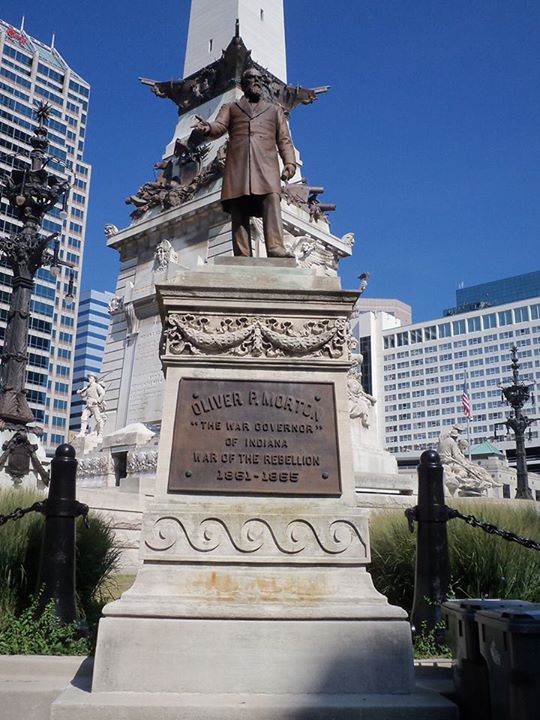This is our playlist for the series. We hope you profit by it; and enjoy it.

This is our playlist for the series. We hope you profit by it; and enjoy it.


Friday, 15 May 2015
My love be with you all in Christ Jesus. Amen. 1 Corinthians 16:24
After a short introduction, Paul’s words in this first epistle to the Corinthians began with grace and peace –
“Grace to you and peace from God our Father and the Lord Jesus Christ.” 1 Corinthians 1:3
Now his words end in love. This is a beautiful example of Paul’s ability to take the most difficult of issues and weave them into a letter with painstaking care in order to ensure that they are neither misconstrued, nor taken in an ill light. During the letter, he has gone on a walk through the dark valley of discontent. He has gone over jagged rocks of disharmony, and over rough roads of bad-doctrine. He has traversed through a jungle of immorality. There in the midst of it, the sharp and painful thorns of misconduct caused the Corinthians to stray in their thinking.
He also traveled along a highway of introduced heresy. With each step, he confidently placed his feet where the snakes of wayward thinking could not strike out and ruin him. After all of this, and much more difficult terrain, he now arrives on the quiet and peaceful shore of a tranquil ending to the epistle with words of comfort and love. Such is the nature of Paul’s heart for the Corinthians. He was willing to take himself and his doctrine though all of this in order to bring them to that contented place with him. May we so conduct ourselves in such matters as well!
Life application: It is time-consuming and difficult to mentor people who are caught in spiritual confusion. It is so much easier to simply say, “They had it coming.” But to take the time to correct others in faulty doctrine is no less important than bringing a person to Christ. The reason for this is that those with faulty doctrine may be a witness of their beliefs to another at some point. If they teach an incorrect gospel, then the hearer of their words will never come to a saving knowledge of the Lord. Therefore, correction of doctrine is as important as the saving of souls.
Lord God, today I ask for patience in my interactions with others who have misunderstood Your word. Grant me the right approach to handling such difficult matters so that I will not be confrontational or belligerent in my attitude as their questions come forth. I know that if their doctrine is wrong and they teach it to another person, that poor soul may never come to a saving knowledge of Your gospel truth. And so help me in this. May my words be in love and my doctrine pure. Amen.

Thursday, 14 May 2015
The grace of our Lord Jesus Christ be with you. 1 Corinthians 16:23
As with all of his epistles, Paul adds into his closing salutation a blessing which is a petition for divine favor to be upon his audience. In the Greek, there is a definite article in front of “grace.” Quite often English translations will insert “the” for clarity, but it may not be in the Greek. However, it is here.
“The grace” is different than saying something like, “May grace from the Lord Jesus be with you.” Paul is asking for a divine impartation of this attribute of the Lord to rest upon those in Corinth (and thus us!) and to sustain them in their walk. It must be truly considered that those who are not obedient to the epistle are to be excluded from this petition.
For example, in 1 Corinthians 5 he wrote concerning a disobedient congregant, saying to “deliver such a one to Satan for the destruction of the flesh, that his spirit may be saved in the day of the Lord Jesus.” It should be obvious that until this person is willing to adhere to the sound instruction of the epistle, this petition for divine grace is not intended for him.
And yet, at the same time, we all fall short of one precept or another. Therefore, it must be considered that it is for those who earnestly strive for adherence to it, even if they do fall short. Such is the nature of grace; undeserved merit. Paul, in one form or another, closes out every one of his epistles with such a note of request for this divine favor. And even the last words of the Bible are very closely aligned with his words here. There John writes –
“The grace of our Lord Jesus Christ be with you all. Amen.”
Life application: The Bible, time and again, asks for an undeserved blessing to be bestowed upon those who pursue it, even if they fall short of what it states. Such is the nature of grace, and such is the nature of our gracious Lord. As you walk along life’s highway, take time to contemplate the wondrous grace which has been lavished upon you. And then thank the Lord and praise the Lord for that same grace.
Lord God, too often I take the many blessings of this life for granted and I even look at Your grace as something I deserve. The beautiful flower that I walk by could have just not been there. The jumping of the porpoise in the ocean happened just as I looked out. The sunset was adorned with ten thousand clouds which captured every color on the painter’s palette. Lord, I suppose that I could go on forever, but you know already… I have been blessed beyond measure and I thank You for it. Hallelujah to my God! Amen.

Wednesday, 13 May 2015
If anyone does not love the Lord Jesus Christ, let him be accursed. O Lord, come! 1 Corinthians 16:22
This seems like an unusually harsh sentiment for Paul to introduce as he concludes his letter, but the entire content of the letter has been of doctrine, correction, and reproof. In chapter 15, he clearly laid out the truth of Christ’s ministry, from the gospel itself all the way through its implication for man. If man accepts the gospel, he moves from death to life. If not, he remains spiritually dead and he will be destroyed, just as Death and Hades will be destroyed.
As an indication of Paul’s intent, the word for “love” here is phileo not agape. This is a warm sort of love spoken of rather than the deeper “godly” and “reverent” love which agape normally refers to. And so to understand Paul’s intent, we can first go back to verse 20 which said, “Greet one another with a holy kiss.” In that verse, the word for “kiss” is philéma, a word with the same root as phileo. Paul is probably tying the two words together in an emotional way.
The body of believers is to have the same heart for the Lord as they have for one another. It is not enough to be a tightly knit group of people who work well together, but to be one that is committed to the work and love of the Lord. If believers are willing to kiss one another and yet not kiss the Son, then their love is a misdirected love. In such an instance, Paul says “let him be accursed.” The word from which this is translated is anathema. Properly, it means “a thing devoted to God.” The implication then is something that is accursed. There is to be no association with such a person within the fellowship because he has no true part in the fellowship.
Finally, Paul closes the thought with, “O Lord, come!” It is translated from the Aramaic words marana and tha. Taken together, we say maranatha, meaning “Lord come!” Some translators use them in the past tense – “Our Lord has come!” Others in the future – “Our Lord is coming!” Others simply use the Aramaic to avoid choosing one over the other. The Lord has come and the Lord is coming again. Whichever Paul was thinking, he has proclaimed it after pronouncing his curse. Because of this, the Geneva Bible gives this thought –
“Let him be accursed even to the coming of the Lord, that is to say, to the day of his death, even for ever.”
Life application: There are times where imprecations are appropriate. Far too many Christians fail to relay the truly serious nature of the gospel. There is one path to God and only one. Without Jesus Christ, there is only death and hell ahead. For those who understand this and yet fail to love the Lord, they are to be treated as outsiders in relation to the church. Unless they change their hearts towards Him, they are accursed.
Lord God, help me to be firm in my convictions concerning biblical truths. There are many things in the Bible which we don’t want to consider because of some personal issue. Because of this, we often align our friendships with what we want rather than what the Bible says. And so Lord, do I hold to the Bible or is it more important to be their friend? In such times, give me the resolve to place Your word above all else. I know that in this I am showing my highest love to You, and this is my desire. Thank You for being with me in this. Amen.

Tuesday, 12 May 2015
The salutation with my own hand—Paul’s. 1 Corinthians 16:21
It is evident from Paul’s letters that he used what is known as an amanuensis, a scribe, to write his letters for him. What seems likely is that he had extremely poor vision, possibly from his encounter with the Lord on the road to Damascus. Because of this, a scribe would write as he dictated and then he would authentic the epistle with his own greeting. That a scribe is used is seen, for example, in Romans 16:22 –
“I, Tertius, who wrote this epistle, greet you in the Lord.”
And so as in several other letters, a personal greeting from Paul is given. Other examples are found in 2 Thessalonians 3:17 and Colossians 4:18. Also, in Galatians 6:11, there is an added thought which is worthy of note –
“See with what large letters I have written to you with my own hand!”
Some take this to mean that he wrote all of Galatians; others that he simply signed the letter in this way. Whichever is the case, the “large letters” seems to indicate a person with weak eyes. It also gave him easily recognized writing which would authenticate his authorship. This is important because in 2 Thessalonians 2, it appears that Paul was worried that someone may try, or actually did try, to forge a letter as if from him –
“Now, brethren, concerning the coming of our Lord Jesus Christ and our gathering together to Him, we ask you, 2 not to be soon shaken in mind or troubled, either by spirit or by word or by letter, as if from us, as though the day of Christ had come.” 2 Thessalonians 2:1, 2
Life application: Paul bore “a thorn in the flesh” which he petitioned the Lord to remove from him. It is speculated that this is referring to his bad eyesight. The truth is that the Lord could have healed him anytime, but chose not to, stating the reason that “My grace is sufficient for you, for My strength is made perfect in weakness.” In this, there is also the truth that Paul’s letters were easily identifiable and therefore forged letters would be shown as false. If you carry a perceived deficiency of some sort, the Lord can and will work with it to His glory. Rather than mourn over your deficiencies, exalt in them, knowing that they have placed you in a particular position for reasons that He is pleased to work through!
Heavenly Father, there are things I can’t do and areas where I am weak or even completely deficient. And yet, if I didn’t have these failings, I wouldn’t be who I am. I may have excelled in an area which kept me from relying on You. I may have had an ability which kept me from choosing a different path in work or in volunteering my time. And then I would have missed interaction with someone who needed me at that moment. Everything I am and everything I do has been shaped for an ultimate end that I cannot yet see. And so I will trust that Your grace is sufficient for me and that Your strength is made perfect through weakness. I will rejoice in my deficiencies if they will but exalt You! Amen.